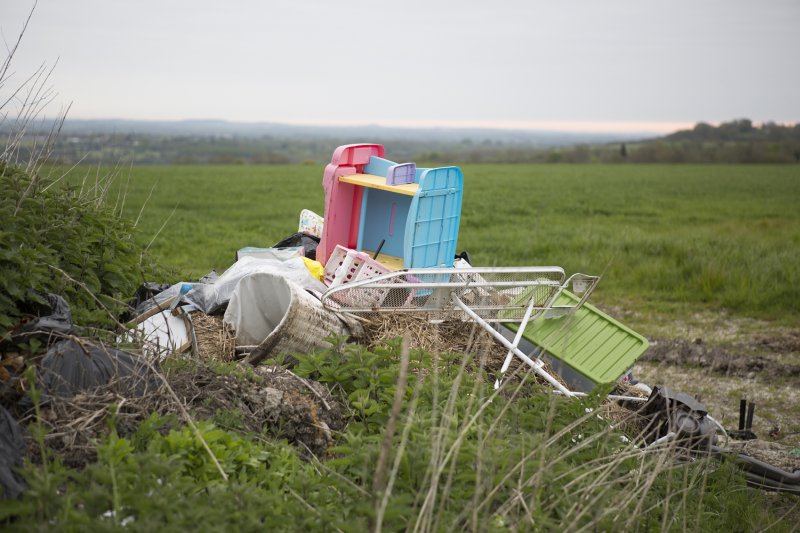
Farmers are being urged to remain extra vigilant following a spike in fly-tipping caused by recycling centre closures and disrupted bin collection services.
Councils across the nation have closed down Household Waste and Recycling Centres in response to the coronavirus lockdown.
Some HWRCs have also scaled back rubbish collections due to reduced staff numbers.
Farmers have now been called on to take steps to protect land, liaise with neighbours and ensure they have insurance cover in place should they fall victim to fly-tipping.
Members of the public are also being encouraged to report any suspicious activity they witness to the police.
Rural insurance specialist Lycetts said despite pressure from farm groups, they are currently no plans to change the law to better protect farmers and landowners.
“At a time when farmers are working flat out, they can ill-afford to contend with the costly and time-consuming burden of removing waste from their land,” said Rupert Wailes-Fairbairn, of Lycetts.
“Although Defra has strengthened local authorities’ enforcement powers in recent years, the onus still lies with farmers to dispose of fly-tipped waste on their land.
"They can even be prosecuted if they fail to do so quickly enough."
Although local authorities can investigate fly-tipping incidents on private land, and bring prosecutions when there is sufficient evidence, the Local Government Association has called for more funding to help them do so.
The coronavirus pandemic has further intensified the pressure on stretched council resources.
Mr Wailes-Fairbairn said: “It can be difficult to prevent fly-tipping, but we should look to support each other as much as possible during these testing times by keeping a lookout and reporting incidents.”
Farmers are reminded of the steps they can take to help deter those responsible, including ensuring that fields, particularly those which are roadside, are gated and locked where possible.
Security lights and cameras at vulnerable locations throughout farms, and at entrance points hidden from view, can also be effective and help to provide evidence should councils decide to investigate, according to Mr Wailes-Fairbairn.
Defra statistics that 1,072,431 incidents of fly-tipping were dealt with by local authorities in 2018/19, an eight percent rise on the 998,000 in 2017-18.
